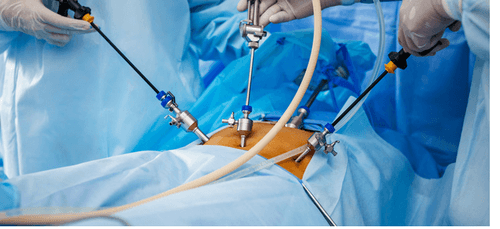
What is Upper Gastrointestinal Surgery?
The upper gastrointestinal (GI) includes the oesophagus (food pipe), stomach and the duodenum (the first part of the small intestine). The upper gastrointestinal tract is prone to several conditions that may need surgical treatment.
There are several diagnostic procedures to evaluate these conditions, including:
- Upper GI endoscopy, a procedure used to diagnose and treat certain upper GI problems or conditions, uses special instruments with a camera and laser attachment
- Oesophageal pH monitoring, which measures how often the stomach acid enters the oesophagus, is most commonly used to diagnose gastroesophageal reflux disease (GERD)
- Oesophageal manometry is used to assess the function of the sphincter (muscle at the lower end of the oesophagus)
These diagnostic techniques can be used to evaluate some upper GI symptoms like swallowing difficulty and abdominal pain, and diagnose underlying conditions that may include benign (non-cancerous) or malignant (cancerous) tumours.
Upper GI surgery includes:
- Gastrectomy is surgery to treat stomach tumours. This involves the partial or full removal of the stomach and nearby lymph nodes.
- Oesophagectomy is surgery to treat oesophageal tumours, and it involves removing all or part of the oesophagus.
- Minimally invasive laparoscopic (keyhole) surgery can be used for resection (removal) of stomach and oesophageal tumours.
Why do You Need Upper Gastrointestinal Surgery?
Your doctor might recommend upper gastrointestinal (GI) surgery if you suffer from symptoms including abdominal pain, bloating, heart burn, acid regurgitation and swallowing difficulties. Your condition will be first evaluated using diagnostic techniques to find the underlying conditions.